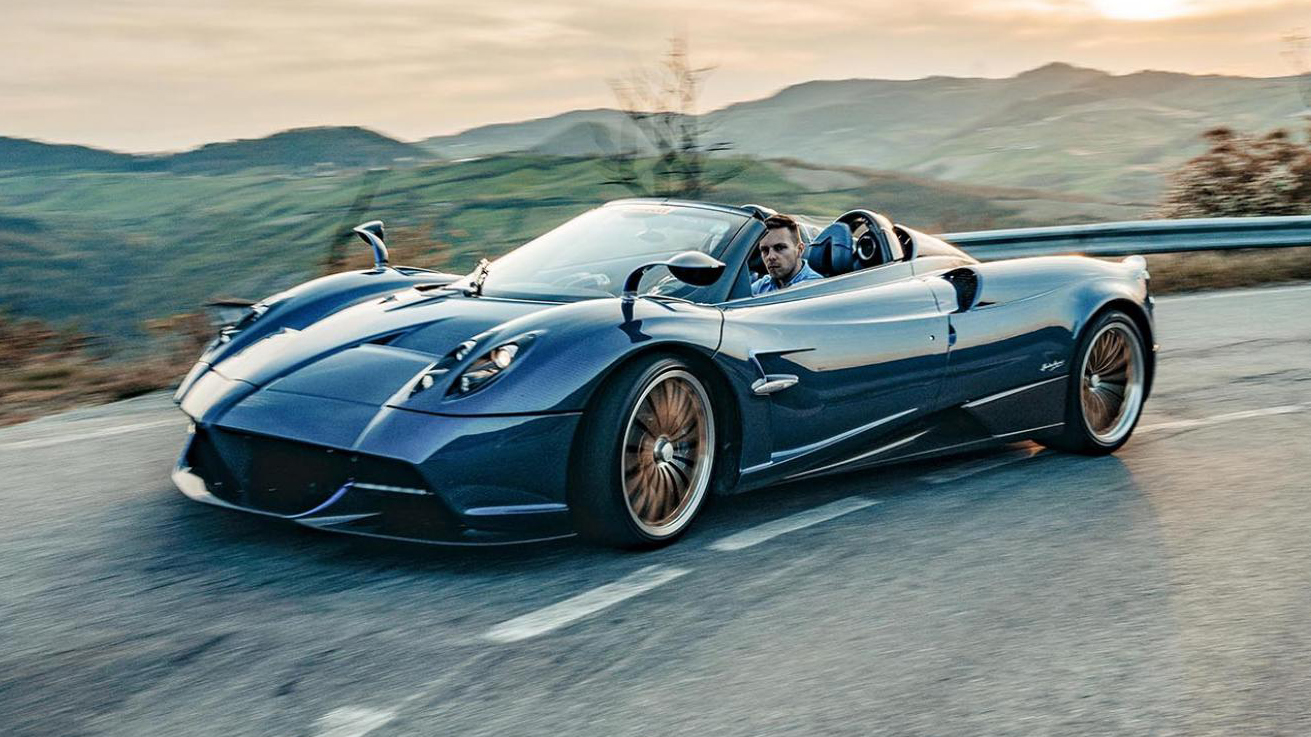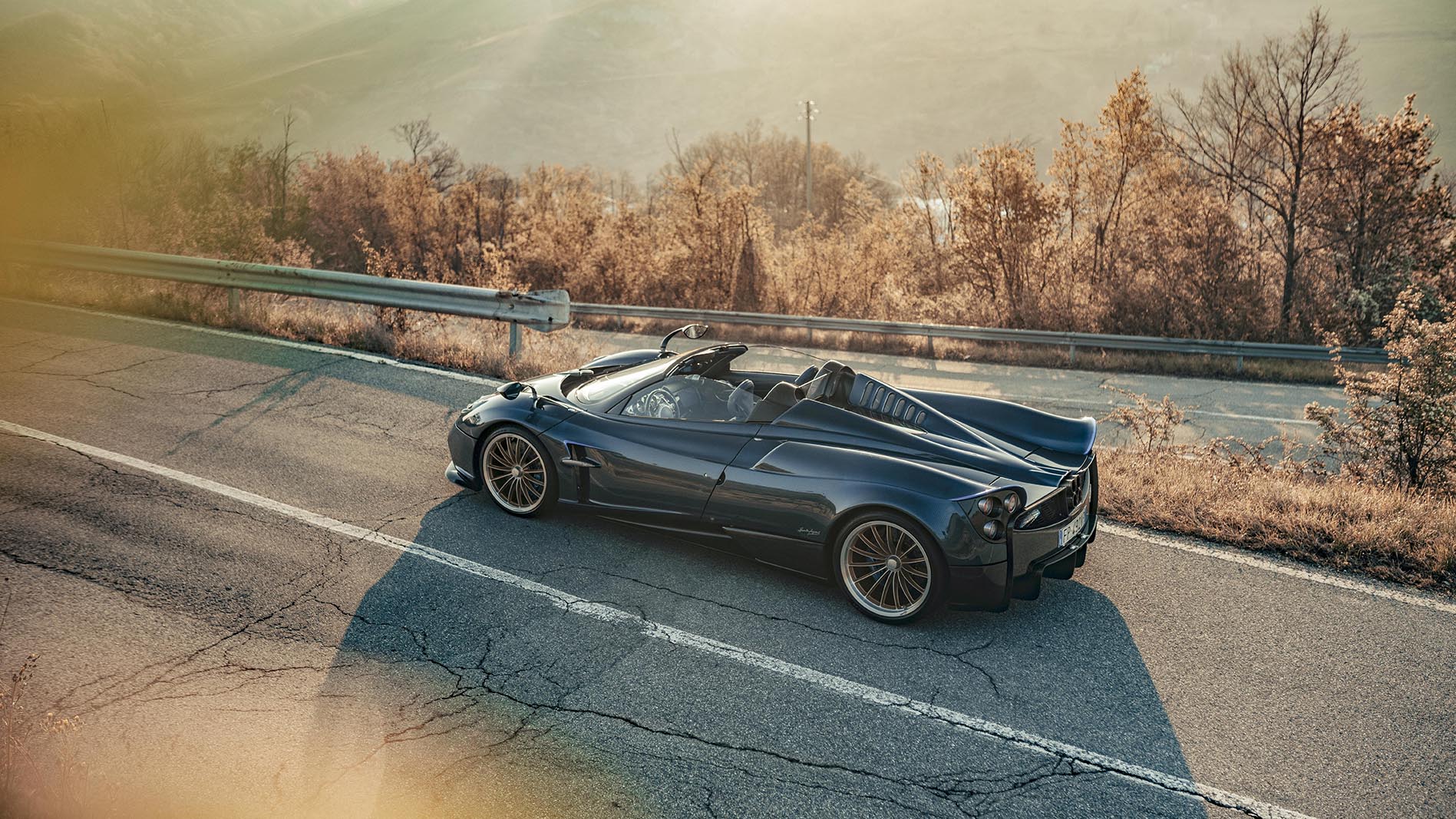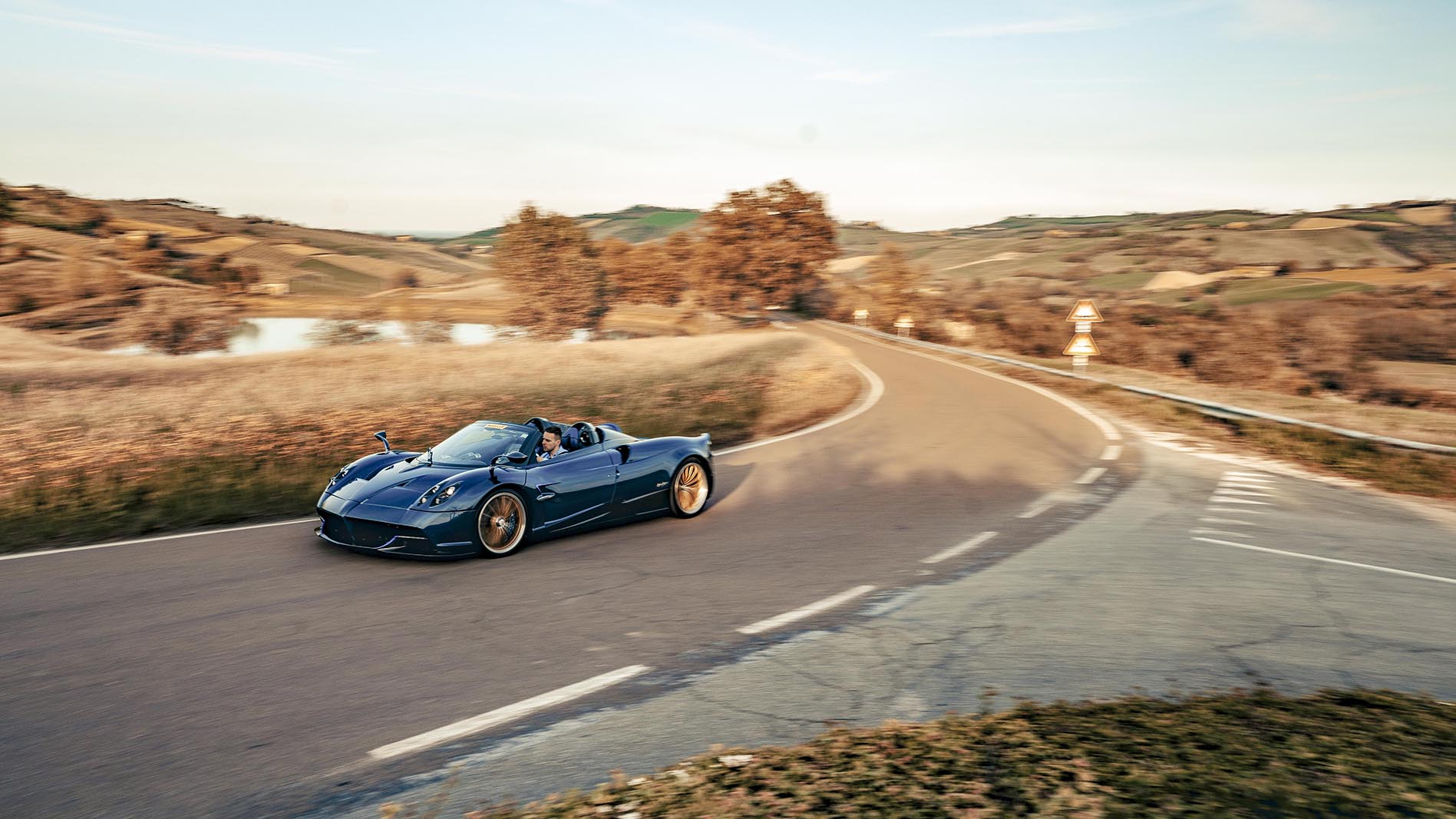
Pagani Huayra Roadster review
Driving
What is it like to drive?
Traditionally, you’d say the open-top version of any sports car is a tad watered down from the hard-top. Forget that generalisation here. It’s stronger, it’s lighter, and it’s more powerful than the Huayra Coupe. It’s actually got more poke than the hardcore Huayra BC Coupe. Which makes it, to date, the most powerful road-going Pagani ever. With 753bhp and 738lb ft of torque, it’s got a similar power-to-weight ratio to a McLaren P1. And that means it’s searingly, shockingly fast.
The raw numbers aren’t overwhelmingly impressive in our spoiled world of launch control and foolproof gearboxes. The Pagani’s systems are a little old-hat, so it delivers 0-62mph in 3.1 seconds (no, not two-point-something) and goes on to a top speed of 210mph. A humble McLaren 570S will, on paper, easily keep that in check.
But if, feeling pretty chuffed with how your life was going up until that point, you rocked up behind a Huyara Roadster in a motorway lane in your McLaren, you’d do very well just to leave it be. Because in-gear, rolling into the throttle, the Huayra is spectacularly, brutally fast. Hypercar fast. It gets from 60-150mph with such disdainful ease you have to recalibrate your braking points, refocus your eyes, and raise your game to have the reflexes of a martial arts master.
In fact, the yawning pauses that pepper your onward trajectory as the single-clutch gearbox swaps ratios are something of a welcome relief in the madness. Dear lord this car is fast. Not funny-fast. Not scary-fast. ‘How did mere humans build something this brutal’ fast. Like an SR-71 Blackbird, or the Saturn V rocket.
It doesn’t sound fast, mind you. The Huayra’s twin-turbo V12 – a bespoke unit made for the Italians by AMG, with its own M158 engine code – is a very different aural experience from the shrieking, howling V12 Zondas of Pagani’s infancy, trading a razor-sharp tune for bellows, hissing and rumble. It’s an interesting, intimidating noise, that’s curiously captivating to listen to on part-throttle as the engine bullies huge quantities of air about. But even with the roof detached, there’s little to revel in as the revs climb. In fact, the jet-like woosh is quickly lost in your wake as the speed skyrockets.
Acclimatising to the sheer volume of warp-factor punch under your right foot takes time and bravery. Happily, the rest of the Huayra Roadster isn’t as intimidating. The massive carbon-ceramic brakes are up to the job required of them, even if the long-legged push they require to really clamp down your momentum seems alarming at first. Actually, it’s the Huayra’s way – it’s a car of crazy performance, delivered in a rather relaxed way. Take the throttle response – it’s soft. The turbos do nothing at all below 2,000rpm, they start to wake up by 2,300rpm, and at 3,000rpm, you’re into hyperspace.
The steering too totally bucks the Ferrari trend for insta-reacting sensitivity, so you can pour the car through corners with one fluid twirl of the exquisite carbon wheel. It doesn’t drip with feel, but there’s decent accuracy there for what’s a fairly big car. And though the suspension is, unusually for a modern supercar, a one-setting-fits-all job, the compromise is a very fairly judged one. Only when a wheel drops into a property jagged pothole does the shudder jolt the super-stiff carbon chassis. The rest of the time, it’s just a lesson in sublime body control.
Here’s what I’m getting at. After running the car through the gears a few times, you can relax in a Huayra Roadster. Seems mad, but you can just lope along in it and the car doesn’t mind. It doesn’t cajole and wriggle and prod the driver, begging to be unleashed, ready to star in the world’s messiest YouTube crash compilation. The Huayra Roadster can lope along like a well-behaved little drop-top. The birds sing. The trees ripple in the breeze. The Huayra wooshes and crackles but controls its impulses impeccably as it’s guided along. The aero flaps perform a merry dance through the corners, and you marvel at how manageable this rear-wheel drive Bugatti rival is.
Apart from two things. One is the gearbox. Pagani admits the X-trac automated manual is the most frequently vexing feature of the car for owners. Upchanges take eons regardless of choice between shifting on the ornate manual lever or the metal paddles, and don’t even think about leaving it in Auto. Unless you’re planning to stick L-plates to the pop-up aero devices.
Featured

Trending this week
- Car Review
BMW iX3






